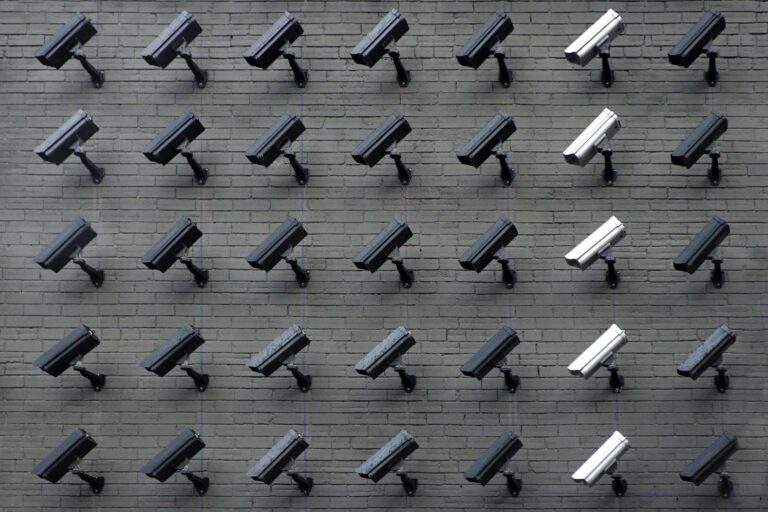Keeping sensitive data private is one of the biggest tasks for today’s IT professionals. Here’s why privacy issues in cyber security should be on your radar.
Keeping sensitive data private is one of the biggest tasks for today’s IT professionals. While constantly evolving regulations and increasingly complex cyberattacks make it a tall task, it’s not impossible with a bit of know-how and risk mitigation.
Here’s why client privacy should be on your radar in 2021 and beyond.
What Is Data Privacy?
Data privacy is a subcategory of online security focused on the safe handling of data. It deals with how data is stored, shared, collected, and transmitted online.
Information privacy online has essential, if not lawful, implications in industries such as healthcare, banking, cloud computing, and governmental affairs. Protecting one’s personal data is equally important, especially as the way we live, socialize, and pay for goods increasingly moves to the digital medium.
Cybersecurity vs. Data Privacy
Cybersecurity and data privacy might seem like the same thing at first glance. They’re close, but there’s a difference: cybersecurity focuses on implementing technical solutions to protect your network. Data privacy, on the other hand, focuses on protecting your information.
Here’s an easy way to remember the difference: data privacy protects data, while cybersecurity protects the system that houses the data.
Why Is Data Privacy Important? (3 Reasons)
Here are three reasons today’s IT professionals should be hyper-focused on protecting business and personal data.
1. Truly Massive Amounts of New Data
Data privacy has always been important. But with more data than ever before (2.5 quintillion bytes, or a billion billion bytes, of new data are produced daily, according to Forbes), protecting it is more important than ever before.
2. Ever-Evolving Regulations
Information privacy is one area of cybersecurity where laws and regulations matter a lot. The uptick in data and the number of cybercriminals trying to steal it has forced lawmakers to act.
Companies and the IT professionals who manage their networks must be privy to the constantly changing guidelines to remain compliant. (See below for more.)
3. The Number of Work-From-Home Employees Is Growing
The need to protect a company’s data is more significant than ever before because so many employees are working from home or in a hybrid role.
Prior to the Covid-19 pandemic, only 20 percent of employees worked from home, according to Pew Research. It peaked at 71 percent during the pandemic, but the push has continued. As a result, the number of WFH employees is only going to increase in the coming years.
What are Data Privacy Regulations?
As it stands, no one law governs how internet data is protected or regulated. Historically, though, essential laws have been passed to dictate how our information can be stored and shared on digital platforms.
Examples include:
- 1974: US Privacy Act
- 1996: Health Insurance Portability and Accountability Act (HIPAA)
- 1999: Gramm-Leach-Bliley Act (GLBA)
- 2013: ISO 27001
Without diving too deeply into each, it’s fair to say these laws and regulations were passed with the bigger picture in mind. Today, though, because data has become such a part of modern life—and because opinions sometimes differ on the moral and ethical use of data—we’re seeing new local laws and regulations being passed.
For example, the General Data Privacy Act (GDPA) passed in 2018 protects EU citizens’ personal data. In 2020, California passed the California Consumer Privacy Act (CCPA), which restricts how companies collect and use their customer’s data.
It’s the job of a managed IT services provider that works with clients in these states or countries to educate clients and uphold these new measures.
How to Protect Your Clients Privacy From a Cyberattack
In 2020, North Carolina businesses submitted 1,644 data breaches to the Department of Justice. More than 1.2 million, or about 11 percent, of residents were at risk of having their personal information exposed.
Here are some ways IT professionals can protect their client’s privacy from cyberattacks:
- Make regular employee education part of the work culture
- Set up firewalls
- Protect wifi passwords and hide the network
- Use end-to-end encryption on email servers
- Use strong passwords for accounts on all company networks and servers
Backing up data on the cloud can also mitigate the damage and costs associated with lost or deleted data.
How to Protect the Data Privacy of Remote Workers
As more employees move to a hybrid or remote role, IT professionals can protect data by:
- Enabling two-step authorization for logins
- Enabling auto-updates on company software or technology devices
- Regularly running malware scanners
- Offering continued education opportunities for employees
- Educating staff of the warning signs of a cybersecurity breach
Using VPNs (virtual private networks) for corporate networks can also help keep unauthorized eyes off a company’s information.
Whichever strategies you implement, the key is to evolve with the times. More data means more varied threats, so educating yourself and adapting to new laws is critical for any IT professional.
